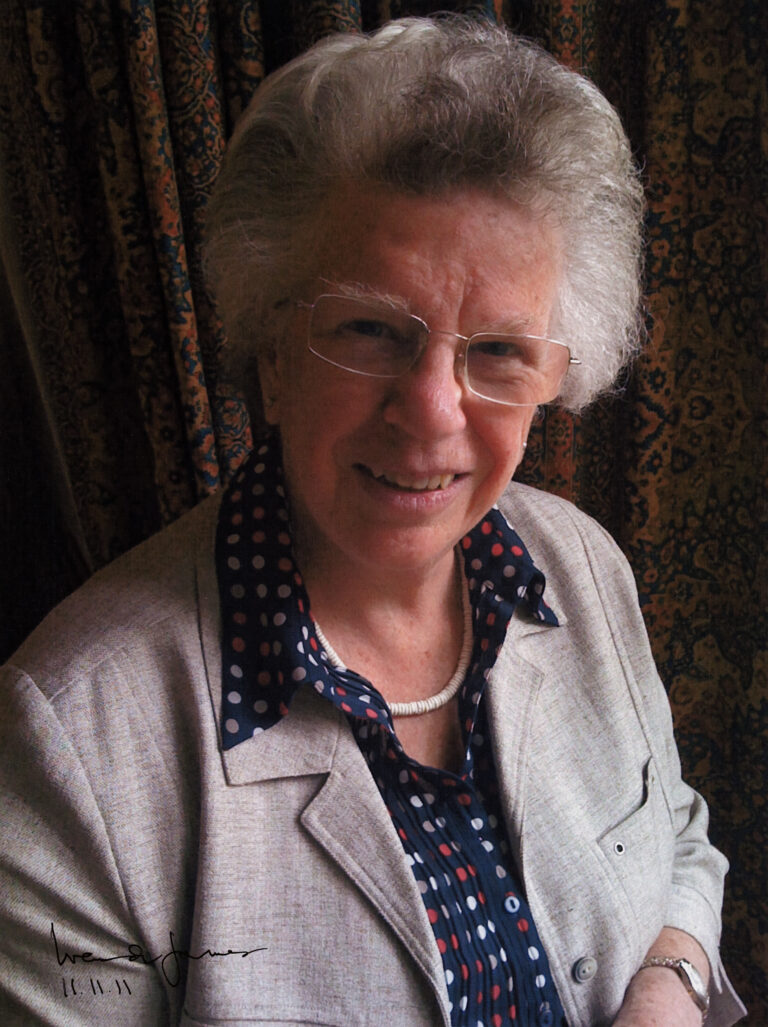Robin Fox (1934–2024), a personal recollection by Lionel Tiger
Several months before completing my doctorate at the London School of Economics I attended the late physical and evolutionary anthropologist Robin Fox’s Malinowski Memorial Lecture, ‘In the Beginning: Aspects of Behavioural Evolution,’ there in 1967. In it he made some responsibly volatile, but brilliantly novel excursions into comparative biology and Darwinian evolutionary theory. Novel yes, but nonetheless still in the demanding context of traditional anthropology. I approached him to remark that I shared those emerging if perhaps eccentric interests that I hoped to embellish in future work. “Then why not come to my office Monday morning,” he responded. I did and we talked then, and again, and again. For five decades thereafter.
The first and unexpected scholarly result was that in 1966 the historically adroit journal Man published our tautly slim announcement ‘The Zoological Perspective in Social Science’. We meant it – this ur-sermon about reclaiming the sciences of Homo Sapiens. We had, we thought then, to rewelcome Darwin (– rewelcome Darwin!) – and his methodologicalism for anthropology in particular, and within social science in general. We had to ponder and celebrate the angelic communiqués of Jane Goodall and the detailed queries about how many millions of years it likely took to evolve the ears, noses, and throats we present to doctors for quotidian restoration of our species’ natural well-being. Embracing the past was an important, even necessary asset for the future.
But First Things came First, for example jobs and how to live and where. Robin had three lively daughters who were all giving and gifted. They were housed very modestly in south London and the family made rainy-day use of the highly experienced tiny car Fox bought from the U.K. Post Office for £50 sterling which required the occasional bad-weather cranking to achieve lift-off. Usually, Robin took a daily train to London and the other men who used the regular parlour cars thought he was an engineer because he was forever working with reproductive graphs, graphed kinship charts, and other forms of bio-accountancy as he wrote his remarkably concise classic Kinship and Marriage (1983). It was published first with CUP, but after it was re-issued it was for a long time Penguin’s internationally best-selling product.
A Rutgers University Department Chairman’s salary was a modest but welcome yeast for the Fox bakery. Fox had had lively and buoyant connections with anthropologists at among other vibrant places such as Harvard, Stanford and UCLA. Throughout his career he brought an international flavor, scepticism and competence to all his professional associations. He was invited to tea by Claude Lévi-Strauss (!) who admired his remarkable Kinship and Marriage. Robin presented a firmly international anthropological gaze within North American anthropology. He was an especially welcome guest at international meetings for his lively participation. For example, because of his hilarious made-up songs (the one on fraudulent kinship should be reproduced somewhere) and his generally colorful and exuberant comportment in a comfortably cross-Atlantic community.
My friend Mario Laserna who founded the University de Los Andes in Bogota invited us to lecture there. On his ranch he managed a bullfighting ring and this convinced Fox he had to try his hand. With the help of Mario’s cowboys, we can describe the outcome as a draw. All of this is to say that the seminars that we gave at the University in Columbia were a joy.
Meanwhile, I was teaching at the gorgeous University of British Columbia in Vancouver, Canada when Robin offered me a job at Rutgers in New Jersey, US. What a choice! However, I was told by my kindly Chairman at UBC Anthropology to take the job offer from Rutgers when Robin was there because my biological-evolutionary interests failed to comfort my West Coast colleagues. And, of course, in a few years they could scuttle my possible promotion to tenure. Meanwhile, Rutgers had no Anthropology Department for uninteresting reasons. So Robin was asked to chair a newly enlivened department where among other endeavours he and I could carry on sharing our Darwinian sonata and of course taking it public too. Throughout the first three decades Robin was chairman much of the time, and our group focussed modestly but aggressively on a reductionist biosocial view of the discipline. This enabled our apparently durable success even though our neighbors to the north at Columbia University called us “The Rutgers zoo”.
Throughout all this, Fox kept researching and writing about an array of transdisciplinary projects on his own in works such as The Tory Islanders : a people of the Celtic fringe (1978), The red lamp of incest: an enquiry into the origins of mind and society (1983), The Violent Imagination (1989), Conjectures & confrontations : science, evolution, social concern (1997), The passionate mind: sources of destruction and creativity (2000), Participant observer: memoir of a transatlantic life (2004),The tribal imagination: civilization and the savage mind (2011) and with Lionel Tiger The Imperial Animal (1971). What he produced is impressive and extraordinary for its breadth of reference and calm mastery. For example, he produced a history of his own grammar school education. This is interesting English history, however Fox envelopes his personal story in the broad context of his sharp historical analysis of Shakespeare’s Education: Schools, Lawsuits, Theater, and the Tudor Miracle (2012). Herein is lively scholarship and calm erudition about the English structures of class and education, with intriguing glancing insights into Fox’s own grammar school experience. And throughout there bubbles Fox’s sense of pleased surprise to be able to write so firmly about the literature of his native country.
Lionel Tiger
(Emeritus Professor, Rutgers University, US)
To cite this article:
TIGER, Lionel. 2024 ‘Robin Fox (1934–2024), a personal recollection by Lionel Tiger’. Obituaries. Royal Anthropological Institute, September 2024. (available online: https://therai.org.uk/archives-and-manuscripts/obituaries/robin-fox)

